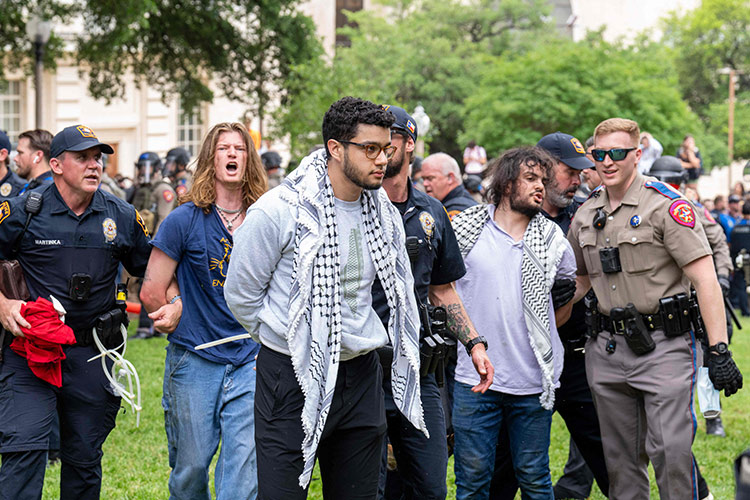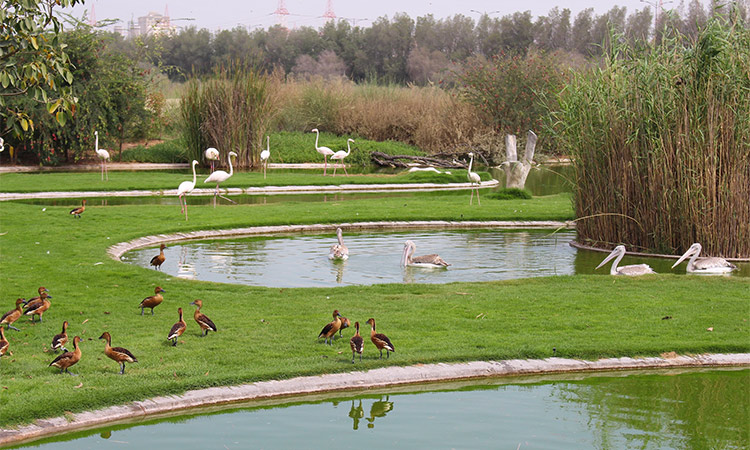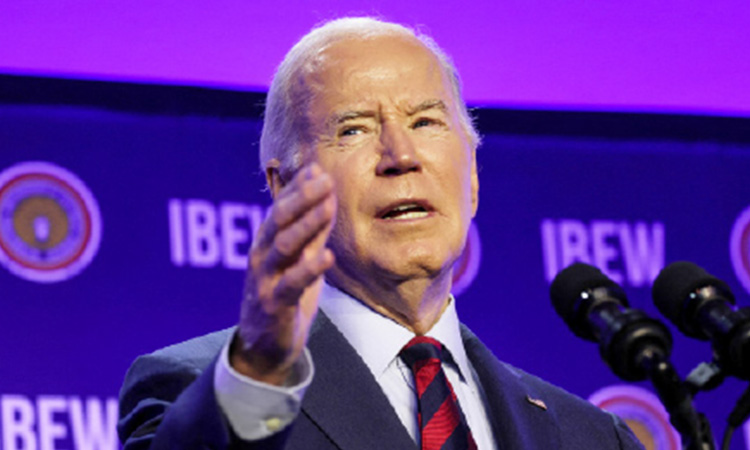Centrepoint of a struggle
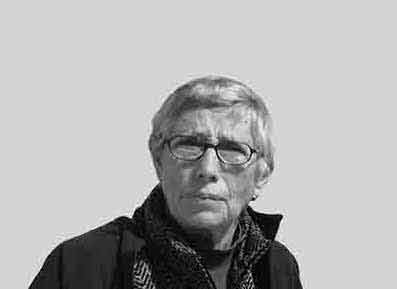
Michael Jansen
The author, a well-respected observer of Middle East affairs, has three books on the Arab-Israeli conflict.
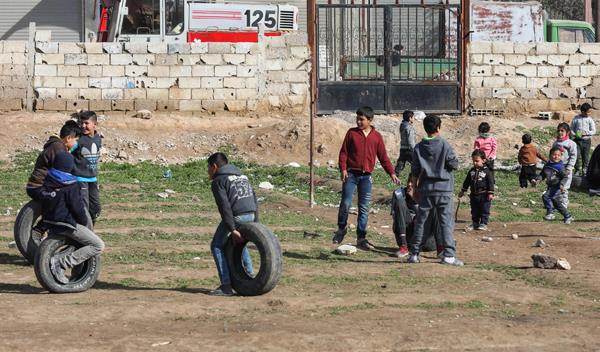
The photo has been used for illustrative purposes.
The US justifies its deployment of an undisclosed number of special operations troops in Manbij by saying they train and reinforce YPG forces and conduct patrols to prevent clashes between Kurdish and Turkish fighters.
Manbij hit the headlines last week when four US military and contract personnel were killed by a Daesh suicide bomber while driving through the market at the town centre. The bomber blew himself outside a restaurant US patrols often stopped for a shawarma sandwich or roast chicken in violation of sensible military practice of varying schedules and keeping away from local shops and fast food outlets. Since they seemed to have considered Manbij a safe town, US commanders and troops were overconfident and lax and were caught by the bomber.
Until this strike, only two US troops had been slain in Syria since the US intervention began in 2015. In Washington, only these casualties count. Some politicians and Pentagon officers blame Donald Trump's call for an early US troop withdrawal from Syria for Daesh's audacious strike in Manbij.
The YPG has established Kurdish dominance in Manbij although its population is mainly Arab and tribal with Kurdish, Circassian, and Chechen minorities. So far, locals have uneasily accepted the situation but this could change if there are more Daesh bombings targeting US personned and YPG fighters in Manbij. At least 10 civilians were killed and many wounded in the Daesh operation.
Having spent billions of dollars trying and failing to recruit and train Syrian Arab miltiamen to fight the government, Washington became involved with the YPG during the battle (September 2014-January 2015) to wrest from Daesh the Kurdish town of Kobane (Ain al-Arab). The US air force, which had been operating in Iraq, launched its first air strikes in Syria late that September, enabling the YPG to both resist Daesh and retake territory it occupied. In the YPG the US discovered a paramilitary force which was unified, had command and control, and discipline, unlike squabbling anti-Damascus "rebel" factions which had none of these assets. In October 2015, the US formed a coalition, the Syrian Democratic Forces, between the YPG and tribal Arab and Christian fighters. The YPG remains the background of this grouping. Consequently, the Obama and Trump administrations have depended on the YPG to deliver US objectives. Thousands of its fighters have been killed and wounded in operations mounted under US auspices and with US air cover.
Turkey protested as soon as the US began to engage with the YPG and demanded that its fighters should withdraw from Manbij to the broad band of territory held by the YPG east of the Euphrates. Ankara argues correctly that the YPG is an off- shoot of the Kurdish Workers' Party (PKK) which has rebelled against Turkey for 30 years with the aim of achieving autonomy or independence. The US promised to meet this Turkish demand but has failed to do so. Turkish President Recep Tayyip Erdogan has threatened to invade and occupy Manbij for more than two years. He stepped up threats last December and massed Turkish troops on the border near Manbij after Trump announced his intention of withdrawing the 2,200 US forces from Syria, including the small contingent at Manbij.
Trump's insistence that Daesh has been "defeated" in Syria and Iraq appears to be the reason the group decided to hit US forces in Manbij. Although Daesh abandoned Manbij it almost certainly left behind "sleeper cells" or loyalists in the town and surrounding countryside. Following Daesh withdrawal from cities it occupied in Iraq, Daesh has infiltrated bombers to carry out attacks. Therefore, Daesh has the assets needs to mount operations. For Daesh, Manbij is a high value target because it is in the headlines these days due to the presence of US troops and to Turkish threats to invade and occupy the town.
Damascus has dispatched troops to the Manbij area and raised the national flag over public buildings to reclaim Manbij for Syria. The government has vowed to regain all Syrian territory lost to insurgents since 2011-12. Damascus does not want to see Turkey exploiting the US and the YPG pull-out of Manbij by occupying this small strategic town.
Russia supports the government's stand and has called for Turkey to drop its threat to invade and seize the town. Erdogan is set to meet Russian President Vladimir Putin on the 23rd. Manbij is certain to be a major item on their agenda. Moscow does not want to see Turkey snatching pieces of Syrian territory, thereby creating a new casus belli in this war-torn country.
When the war began, Manbij had a population of 100,000 but many residents fled after local insurgent forces captured the town in July 2012 and more left after Daesh took over in January 2014. Following a two-month battle, the YPG-dominated Syrian Democratic Forces drove out Daesh, took over the town and formed the Manbij Military Council which asserted control over Manbij and its countryside. A municipal council was created to administer the city and to connect it to the Kurdish self-declared autonomous area called Rojava. Over the past few months the Kurds have been negotiating with Damascus over the hand-over of the areas they hold. The Kurds have, however, continued to claim a certain level of autonomy for this region, 25 per cent of Syria, and the transformation of the system of governance from a centralised to a federal system. The government cannot afford to accept these demands for two reasons. Turkey would be certain to use acceptance of Kurdish autonomy as a pretext to invade while decentralisation could lead to fragmentation of the Syrian state.
It is my favourite race, and although thousands of miles separate my training base in Kaptagat, Kenya from New York, the event feels like home.
An Indian government official, speaking on condition of anonymity as he was not authorised to speak publicly, warned that even if the pilot is returned home, New Delhi would not hesitate to strike its neighbour first if it feared a similar militant attack was looming.
Modi earlier in the day warned that "India's enemies are conspiring to create instability in the country through terror attacks."
Khan also said that he had feared Wednesday night that India might launch a missile attack, but the situation was later defused. He did not elaborate.
"Pakistan wants peace, but it should not be treated as our weakness," Khan said.
"The region will prosper if there is peace and stability. It is good for both sides."
Meanwhile, fresh skirmishes erupted Thursday between Indian and Pakistani soldiers along the so-called Line of Control that divides disputed Kashmir between the two nuclear-armed rivals.
India's army said Pakistani soldiers were targeting nearly two dozen Indian forward points with mortar and gunfire. Lt. Col. Devender Anand, an Indian army spokesman, called it an "unprovoked" violation of the 2003 cease-fire accord between the two countries.
He said Indian soldiers were responding to ongoing Pakistani attacks along the highly militarised de-facto frontier.
